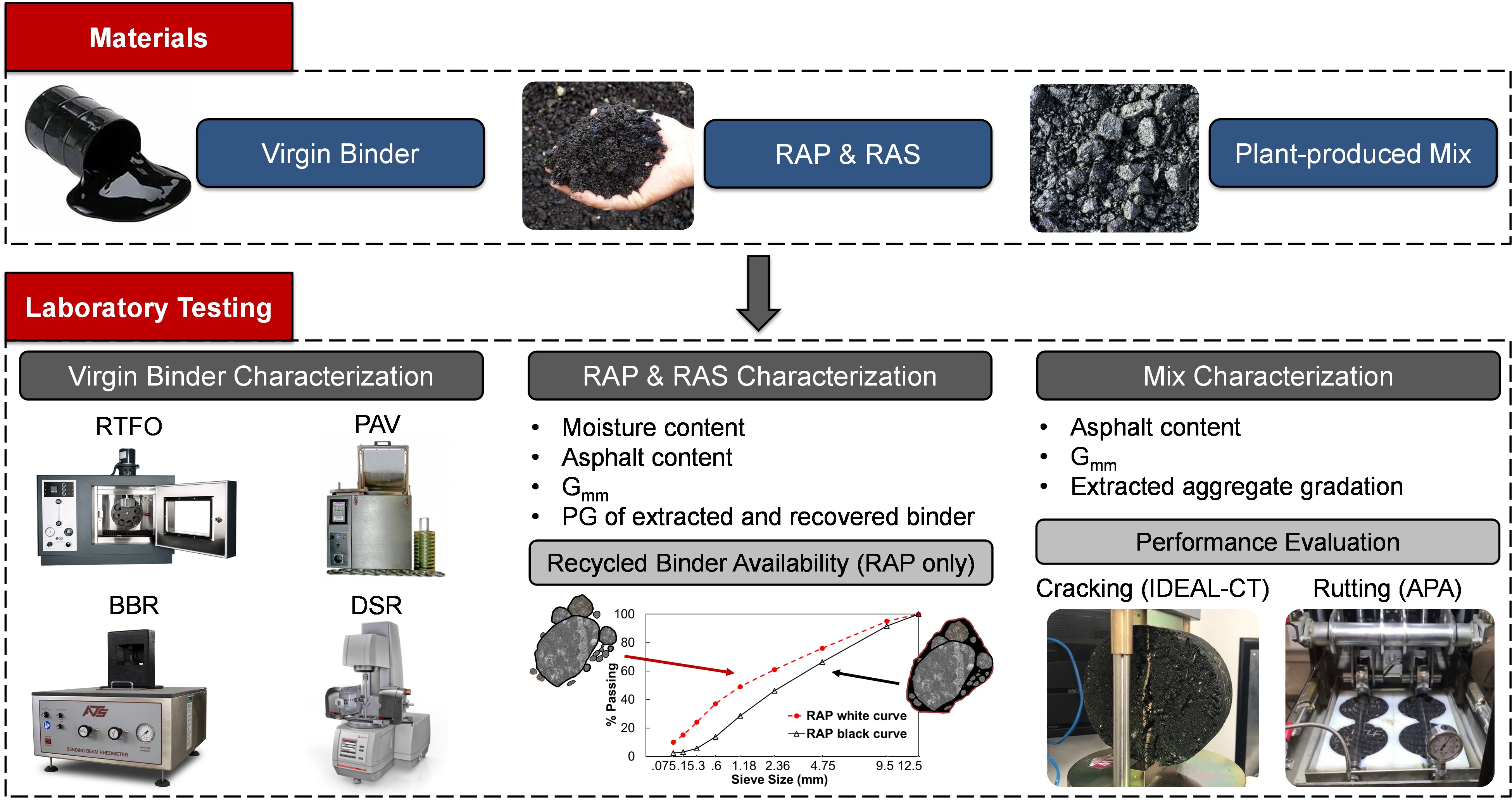This report summarizes the findings of a study
evaluating the variability of Reclaimed Asphalt Pavement (RAP) and Recycled
Asphalt Shingles (RAS) stockpiles across North Carolina and the corresponding
performance of plant-produced asphalt mixtures. The goal of this study was to
inform improved specifications for recycled materials in asphalt mixtures by
assessing how processing and stockpiling practices influence material
consistency and mixture performance.
Seven asphalt plants operated by five
contractors were selected across the coastal and piedmont regions of the state.
Over approximately 1.5 years, researchers conducted operational reviews and repeatedly
collected samples of plant-produced mixtures, RAP, RAS, and virgin binder.
These materials underwent laboratory testing to evaluate binder content,
aggregate gradation, specific gravity, recycled binder availability (RBA), and
recovered binder performance grade (PG). Asphalt mixture performance was
assessed using indirect tensile cracking test (IDT-CT) and asphalt pavement
analyzer rutting (APA) test. RAP binder contents ranged from 4.3% to 5.4%.
While some plants maintained consistent RAP properties, one plant which
performed monthly in-house jaw crushing, exhibited greater variability in
asphalt content. Plants relying on outsourced impact crushing with less
frequent replenishment showed more stable asphalt content results.

Summary of the tests used to evaluate the
materials
A
probabilistic analysis of NCDOT’s recycled binder replacement percentage (RBR%)
limits showed that lowering the limit for PG 64-22 mixtures from 30% to 20%
increased the probability of meeting AASHTO M 320 intermediate- and
low-temperature PG requirements from 75% to 95%. This compliance could be
maintained at higher RBR% levels using PG 58-28 binder. IDT-CT results were generally
consistent within a given plant over time but varied across plants.
Rutting
performance also varied but all mixtures fell well below NCDOT’s APA limits. IDT-CT
results were most strongly correlated with VMA, asphalt content, and binder
properties, while APA results were linked to aggregate gradation.
The findings
support tighter controls on mixture volumetrics and gradation and highlight the
need to incorporate cracking performance tests into mixture design and potentially
quality assurance to ensure consistent performance when using recycled
materials.
